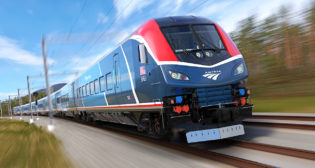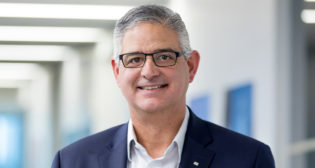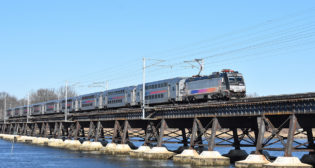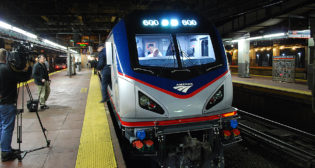
Transit Briefs: CTA, Metrolinx, Washington Union Station
Written by Marybeth Luczak, Executive Editor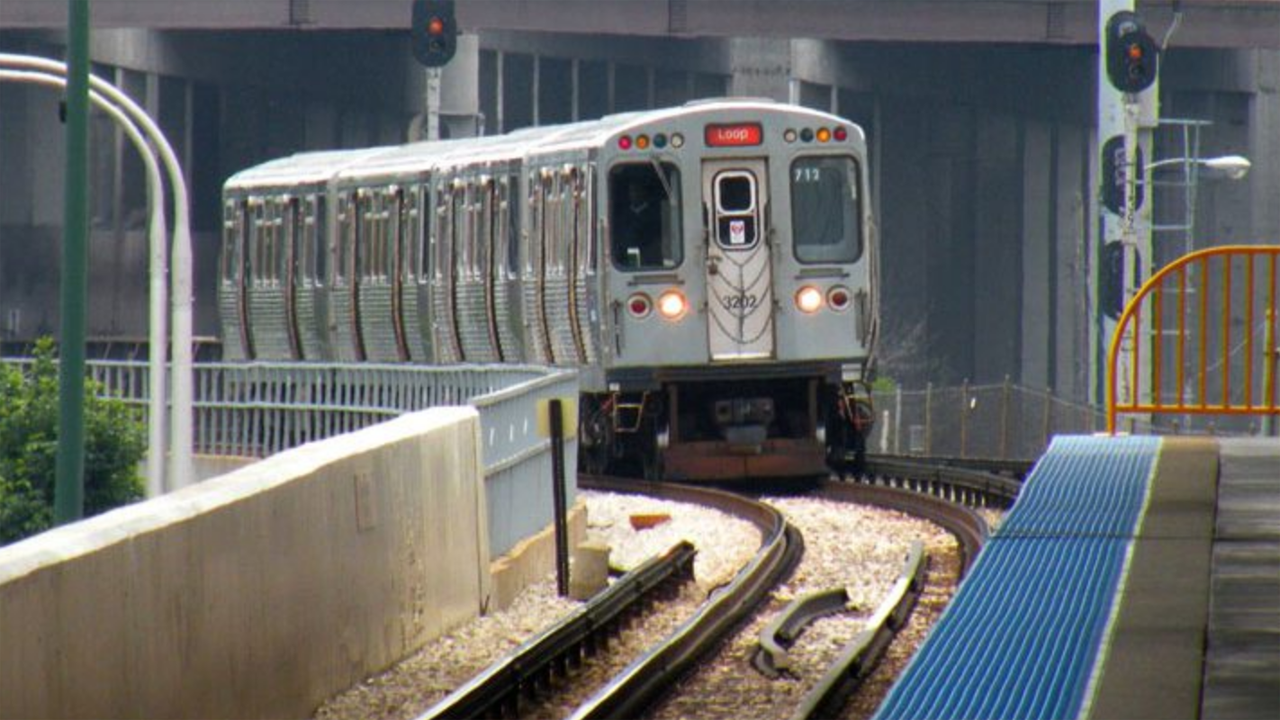
The CTA Board on May 10 signed off on an ordinance that makes permanent recent part-time student and tiered-pricing pilot programs for the agency’s U-Pass Program. (CTA Photograph Courtesy of the Federal Transit Administration)
Chicago Transit Authority (CTA) makes permanent two discounted fare-pass programs for students at participating high-education institutions, and releases its monthly service/operations “scorecard.” Also, Ricardo will provide safety assessment support for Metrolinx’s Ontario Line project in Toronto; and Washington, D.C.-area legislators seek federal funding and an expedited timeline for the multi-billion-dollar Washington Union Station Expansion Project.
The CTA Board on May 10 signed off on an ordinance that makes permanent recent part-time student and tiered-pricing pilot programs for the agency’s U-Pass Program.
According to CTA, the U-Pass Program has been in existence for more than 20 years and will now be renewed for another five years beginning with the 2023-24 academic school year. The program currently has 60 participating schools with about 94,000 students enrolled. “During the pandemic while many students were attending school remotely, schools were no longer required to enroll 100% of eligible full-time students and the U-Pass Program was changed to an opt-in model,” the agency reported. Under the new agreement, it said, the U-Pass Program will remain an opt-in model and permanently offer tiered pricing for participating schools since it was introduced in May 2022. Current pricing of the U-Pass Program is set at $1.25 per student-per day for schools that have fewer than 100% of students enrolled. For schools that have enrolled 100% of their students in the program, pricing is set at $1.00 per student-per day.
Additionally, the U-Pass Program will now be available to part-time students taking four or more credit hours per quarter and six or more hours per any term greater than a quarter, according to CTA. “This follows a successful pilot study offered at the University of Illinois Chicago (UIC) and City Colleges, which saw overall student enrollment in the U-Pass Program increase by 10.5%,” the agency reported. “This new addition to the program will include most part-time graduate and undergraduate students.”
“By offering greater flexibility and access to what is by far the most convenient and affordable transit option around, the changes made to the U-Pass Program are a win for all involved,” CTA President Dorval R. Carter Jr. said. “Now full-time and part-time students can opt-in to have unlimited travel on the CTA during the school year at an affordable price, and in return they will help boost ridership outside the peak travel period, all while developing healthier, greener travel habits—ideally becoming lifelong public transit users.”
Also on May 10, CTA issued its April scorecard (see above). Highlights include:
- Of the budgeted 839 full-time rail positions, a total of 710 were filled through the end of March, according to the transit agency. A new rail operator class entered service in April and those numbers are slated to be reflected in next month’s scorecard update. Additional graduating classes of rail operators are anticipated to enter service into service in early June and late July, said CTA, which noted that it “continues to undertake aggressive recruitment, hiring and retention efforts to address the shortage of transit workers that continues to impact the industry.”
- “[‘R]ail service delivered’ improved compared to the previous month indicating that our latest schedules are matching better with the actual service we can provide,” CTA reported. Rail service delivered was 89.7% in April 2023 vs. 84.8% in March 2023.
- CTA recently completed three out of 29 Refresh & Renew station upgrades planned for this year. Additionally, CTA has also completed improvements at eight out of 18 planned employee facilities and bus turnaround locations as part of continued investments in its workforce and operations infrastructure.
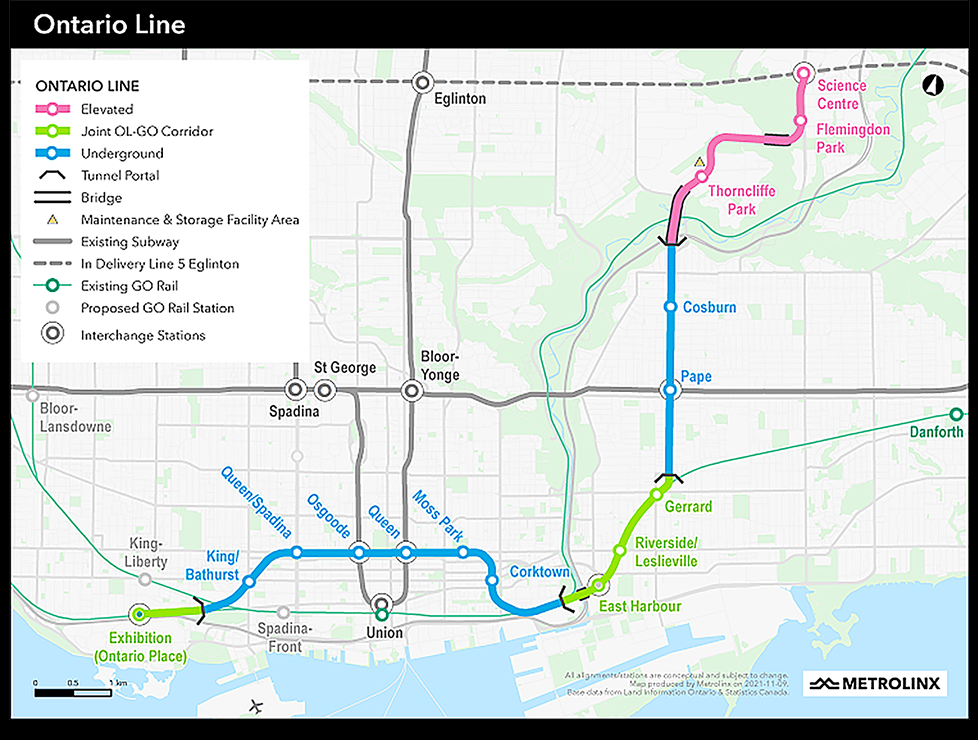
U.K.-based Ricardo on May 11 reported its appointment by Hitachi Rail STS Canada to provide Independent Safety Assessment (ISA) support for the build and launch of services on Metrolinx’s Ontario Line in Toronto. Hitachi Rail STS Canada is a member of the Connect 6ix Group, which last November landed the C$9 billion contract for the Ontario Line Rolling Stock, Systems, Operations and Maintenance (RSSOM) package.
The 9.7-mile (15.6-kilometer) Ontario Line is a planned Toronto Transit Commission (TTC) rapid transit line linking the Ontario Science Center and Exhibition/Ontario Place. The standalone line, half of which will be underground, will include 15 stations and more than 40 connections to other transit routes, including GO Transit lines, existing TTC subway and streetcar lines, the under-construction Eglinton Crosstown Light Rail Transit, and bus services (see map above).
As the ISA, Ricardo said it will be responsible for ensuring “all safety requirements for the new railway in relation to the RSSOM contract have been identified and, in the opinion of our experts, adequately addressed, through to the route’s planned completion in 2031.” According to the firm, the ISA role scope “will extend across all aspects of the project to be overseen by Connect 6ix. This includes the design, supply and future maintenance of the rolling stock; the integration of technologies such as the signaling, communications, passenger information, traction power and SCADA systems; and the plans and policies for daily service operations.” The firm is also tasked with assessing whether security measures, including cybersecurity, are “sufficiently robust for the project’s risk profile.”
Ricardo will provide Metrolinx with detailed reports and audits during each stage of the project.
In related developments, Ricardo reported last August that it will provide Systems Integration Verifier Services for the O-Train network extension, and last June that it signed a strategic alliance agreement with MxV Rail that will bring together the two company’s engineering and testing capabilities.
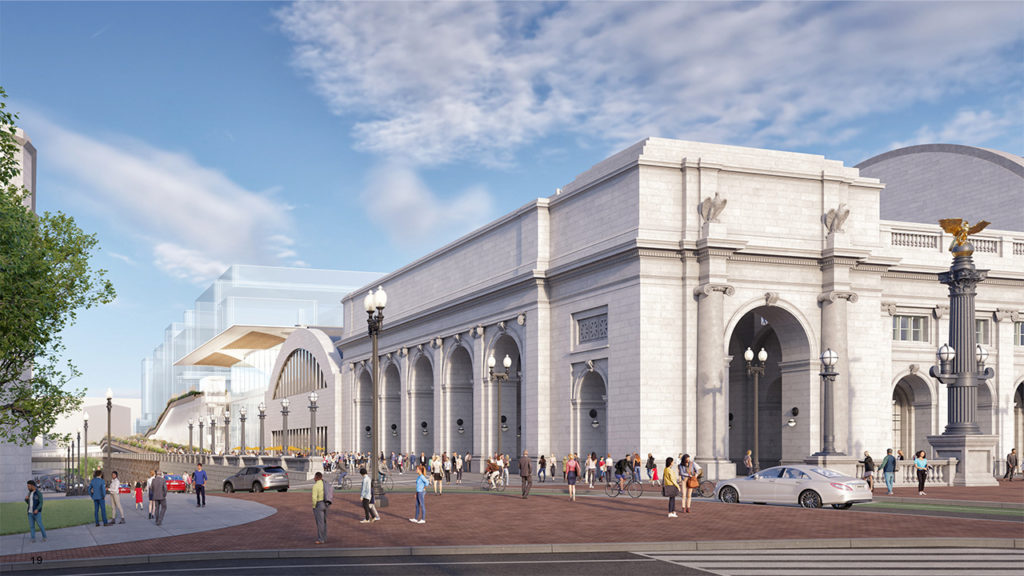
The Washington Informer on May 9 reported that Washington, D.C.-area legislators are urging the Biden Administration to “provide robust funding and an expedited timeline for the Union Station Expansion Project (USEP), which will double the facility’s capacity upon completion.”
According to the news organization, D.C. Del. Eleanor Holmes Norton wrote a letter to President Joe Biden and Transportation Secretary Pete Buttigieg, that was co-signed by Sen. Chris Van Hollen (D-Md.) and Maryland Reps. Jamie Raskin (D) and Glenn Ivey (D), with the support of more than 12 members of Congress.
“Union Station is five blocks from the U.S. Capitol, serves as the transportation gateway to the District, and has historically welcomed more travelers per day than either Reagan National or Dulles International airports,” said Norton, according to The Washington Informer. “Additionally, Union Station serves as the backbone connecting East Coast rail lines to the north and south. The USEP would provide the first infrastructure improvements to the station since the 1990s. We cannot delay the project indefinitely and ensure the station continues to function, so we must urge the Biden administration to fund and expedite the project.”
The Federal Railroad Administration owns Union Station and is heading the multi-billion-dollar Washington Union Station Expansion Project, along with Amtrak. They are seeking federal funding through the IIJA infrastructure program President Joe Biden signed into law in 2021. FRA Director of Communications Dan Griffin told WAMU in June 2022 that “it’s premature to estimate costs and the project timeline at this time.” An earlier estimate priced the renovation at roughly $10 billion, with completion by 2040.
